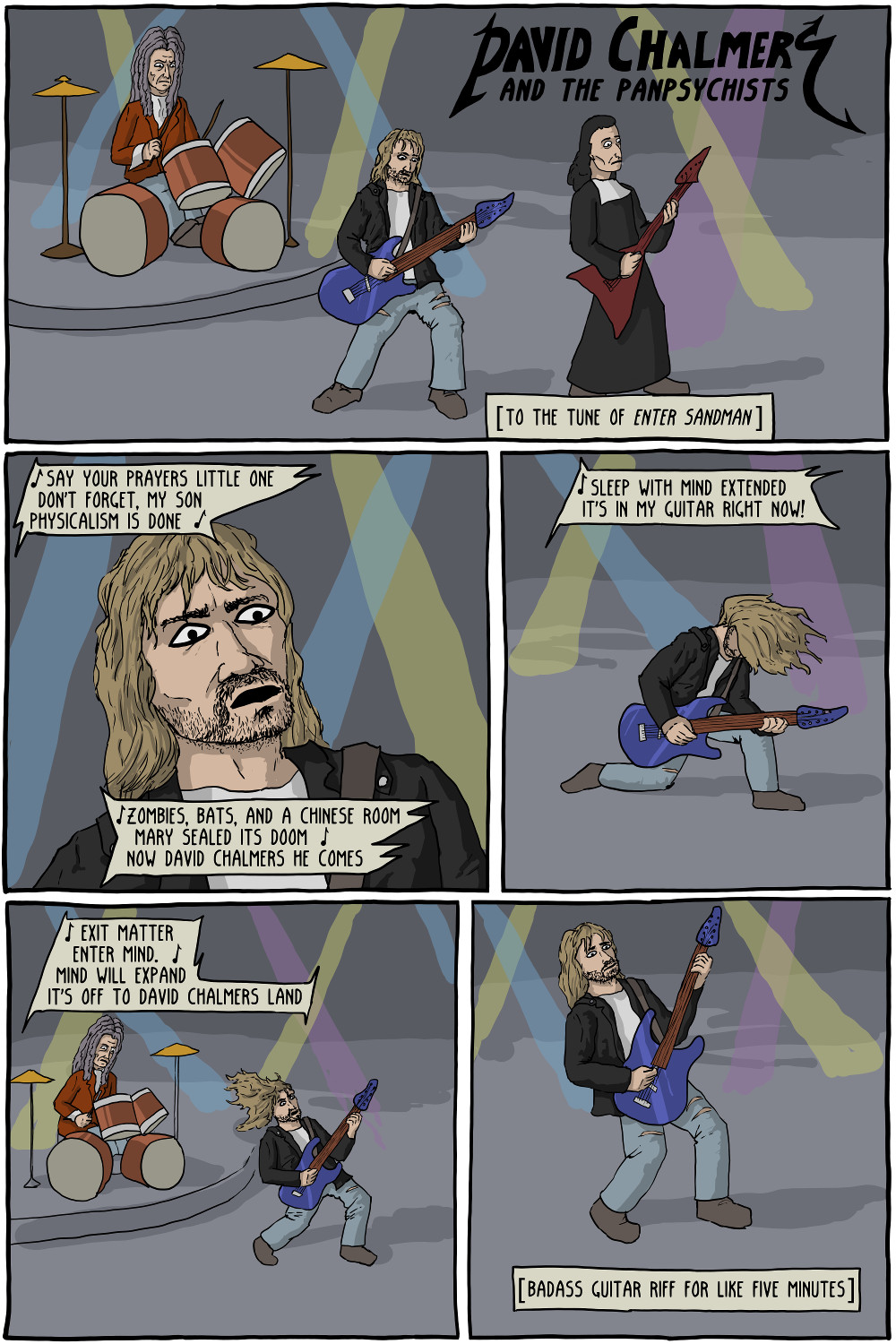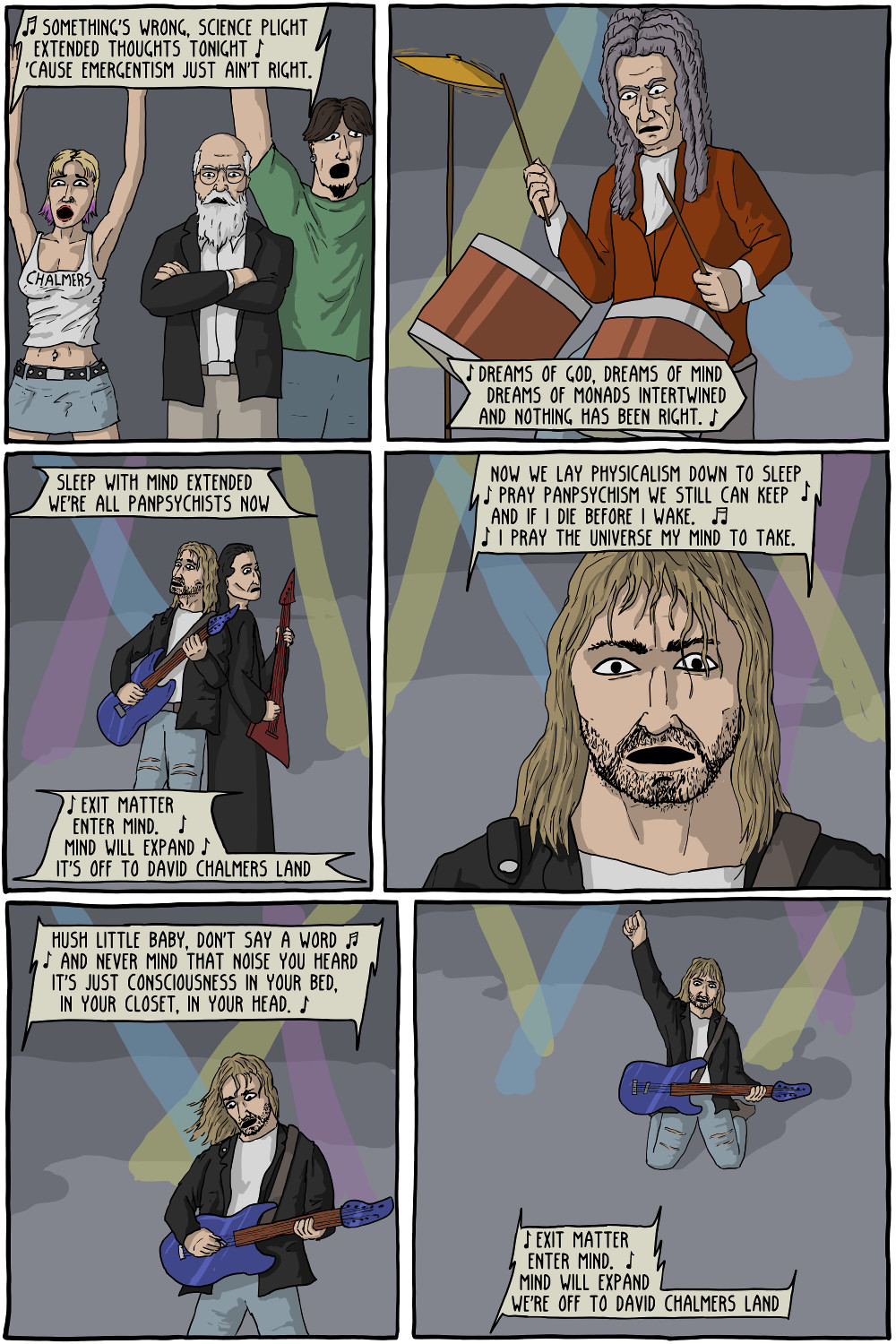

David Chalmers is a contemporary philosopher of mind, and proponent of panpsychism, the belief that there is some form of consciousness in everything. He believes that it is impossible to explain consciousness scientifically using only objective facts, so if science is to explain consciousness it must take it to be a simple. This might entail that it is somehow in everything, or a part of everything (i.e. panpsychism), although Chalmers says he isn't actually 100% committed to this view, he says it is a big possibility. He is also known for his "extended mind" theory, which says that our "mind" is not simply confined within our brain, since we use other means to aid our cognition (including environmental aids, such as notebooks, calculators, or computers). While David Chalmers' theories have gained a lot of traction in modern philosophy of mind, he has been widely criticized recently within the philosophy community for cutting his awesome rock 'n roll style hair.
The other two band members are Leibniz and Spinoza, two panpsychists from the 17th century. Leibniz in particular was strongly committed to panpsychism, as he thought everything was made of "monads", and monads have some form of perception. Spinoza, like Chalmers, was more weakly committed to it, believing that consciousness was part of nature but not being 100% clear on whether it was nessecarily in everything.
Dan Dennett is in the audience looking grumpy as Chalmers says that "emergentism just ain't right". He is a proponent a form of emergentism regarding consciousness, saying that it emerges from feedback mechanisms in the brain (in a somewhat analogous way to how "traffic" emerges from cars driving). He is also open to the idea that consciousness is in other non-biological systems which have such mechanisms, such as thermostats.
Permanent Link to this Comic: https://existentialcomics.com/comic/59
Support the comic on Patreon!










